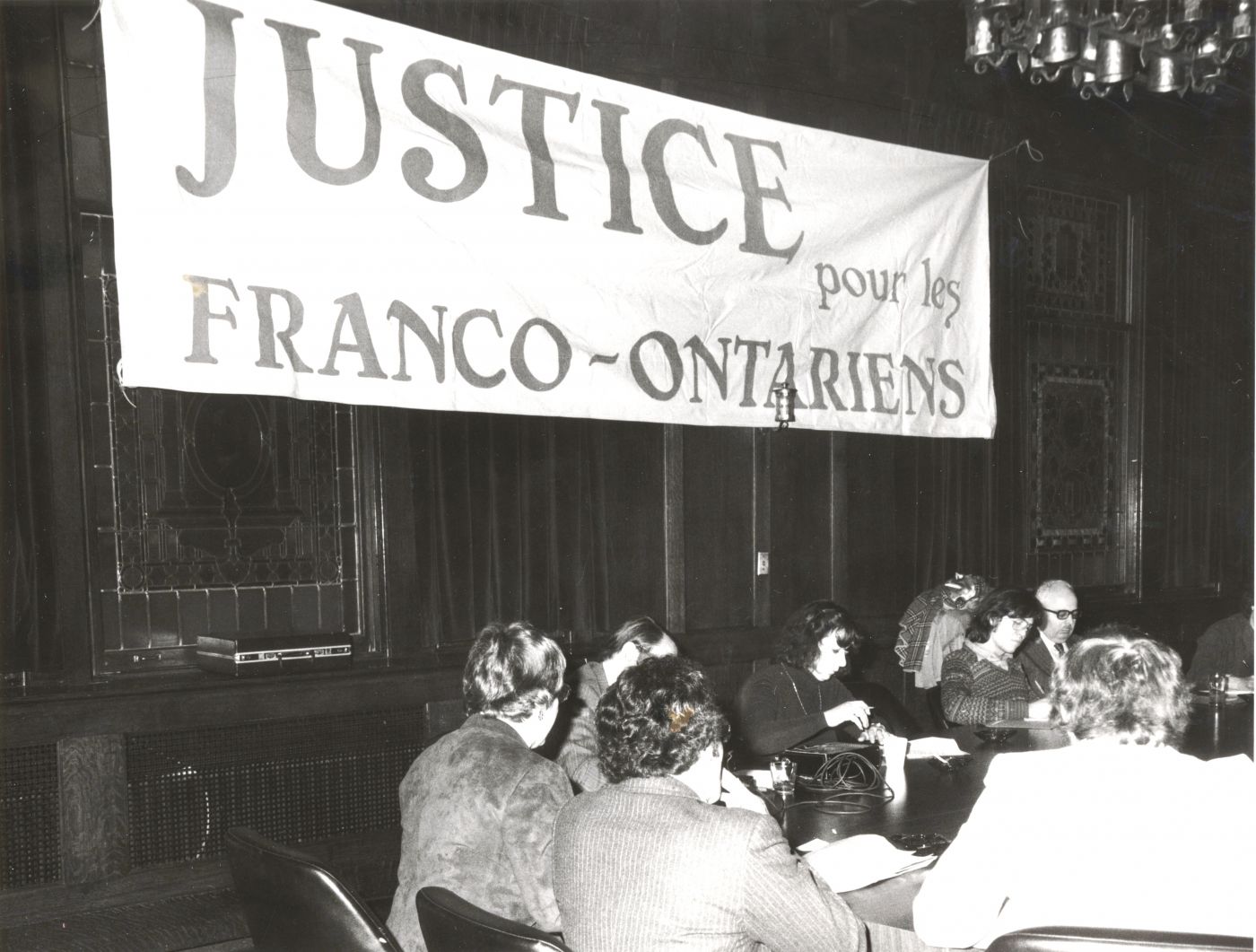On March 20, 1969, ACFÉO is renamed the Association canadienne-française de l’Ontario (ACFO). More than just a name change, the organization broadens its very mission to encompass all areas of Francophones’ collective life, and democratizes its operations. The objective is ambitious. A new umbrella structure is created to help ACFO fulfill its expanded mandate. It includes many specialized associations formed and affiliated with ACFÉO over the years, along with regional councils to bring the organization closer to its base.
One of the first initiatives of the new ACFO is to set up a regionalized program of socio-cultural services, with support from the Department of the Secretary of State, which finances the program. The Comité franco-ontarien d’enquête culturelle (Saint-Denis) strongly recommends it in view of the cultural anemia in the “régions.” But relations are tense between the provincial arm of ACFO and some of the facilitators deployed on the ground to raise awareness in the community regarding needs and resources.
The former prioritizes linguistic, cultural and even “national” issues that have been at the heart of the organization’s mission since its beginnings. The latter, inspired by theories of decolonization, seek to assert that the objective is above all to liberate Franco-Ontarians from economic and political oppression. The rebellion starts in the North, but it spreads quickly to all regional offices, including Ottawa. And it soon overcomes the latest inclinations of ACFO to engage in community development.
From then on, ACFO limits its interventions to the political and linguistic arenas, transferring other files to regional branches and specialized associations. ACFO channels its energies into advocacy toward a legal Ontario framework that confers official status to French. The association calls for Francophone management of French-language schools in the province. It advocates for the creation of French-language colleges in Ontario, as well as a Franco-Ontarian university.
But the organisation’s influence gradually diminishes. The numerous associations that emerged over the years to ensure consultation in specific spheres (youth, women’s affairs, arts and culture, justice, health and social services, heritage, municipal politics, economy, etc.) are themselves engaged in the political advocacy that ACFÉO-ACFO had previously carried out. Conflicts arise around restructuring and, after moving its offices to Toronto for a few years, ACFO is integrated in 2006 into a new organization set up to coordinate dialogue among French communities in the province, the Assemblée de la francophonie de l’Ontario.
